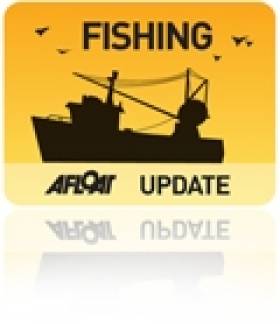Displaying items by tag: EU
EU Seafood Labelling Rules 'Not Being Enforced'
Next time you buy fish at the supermarket, it may not be what it appears to be - according to the authors of a new paper on truth in food labelling in the European seafood industry.
Mother Jones reports that researchers from the School of Biology and Environmental Science at UCD found a surprising 25 per cent of haddock and cod products "randomly sampled from supermarkets, fishmongers' shops and take-away restaurants" in Dublin "were genetically identified as entirely different species from that indicated on the product labels".
The team also stated that 28 out of 34 selected samples of smoked fish were found to be labelled incorrectly.
"These results indicate that the strict EU policies currently in place to regulate seafood labelling have not been adequately iimplemented and enforced," they said.
The paper - Smoke, mirrors, and mislabeled cod: poor transparency in the European seafood industry, by Dana D Miller and Stefano Mariani - is published in the current issue of the journal Frontiers in Ecology and the Environment.
New EU Passenger Rights for Sea & Inland Waterways
The European Parliament and European Council have formally adopted a regulation giving new compensation rights to passengers using water transport. The regulation is expected to come into force at the end of 2012.
"People are entitled to enjoy the same levels of quality and safety wherever they travel within the European Union. I am very glad that after introducing rights for air and rail passengers, we are now also able to introduce similar rights for passengers travelling by water" said Siim Kallas, Commission Vice President and responsible for transport.
The new regulation that will enable passengers travelling by sea and by inland waterways to enjoy the same rights wherever they travel in the European Union. The information can be viewed in full from the Irish Maritime Development Office (IMDO) website: www.imdo.ie
Below is a list of the new Passenger Rights.
•guarantee of reimbursement or rerouting in situations of cancellation or of delay at departure of more than 90 minutes;
•adequate assistance (such as snacks, meals, refreshments and, where necessary, accommodation up to three nights, with a financial coverage up to €80 per night) in situations of cancellation or delay at departure of more than 90 minutes;
•compensation, between 25% and 50% of the ticket price, in situations of delay in arrival or cancellation of journeys;
•non-discriminatory treatment and specific assistance free of charge for disabled persons and persons with reduced mobility both at port terminals and on board ships, as well financial compensation for loss or damage of their mobility equipment;
•minimum rules on information for all passengers before and during their journey, as well as general information about their rights in terminals and on board ships;
•establishment by carriers and terminal operators of complaint handling mechanism available to passengers;
•establishment of independent national bodies for the enforcement of the regulation, through, where appropriate, the application of penalties.
In addition further detailed information about passenger rights in all modes of transport can be found HERE.




























































